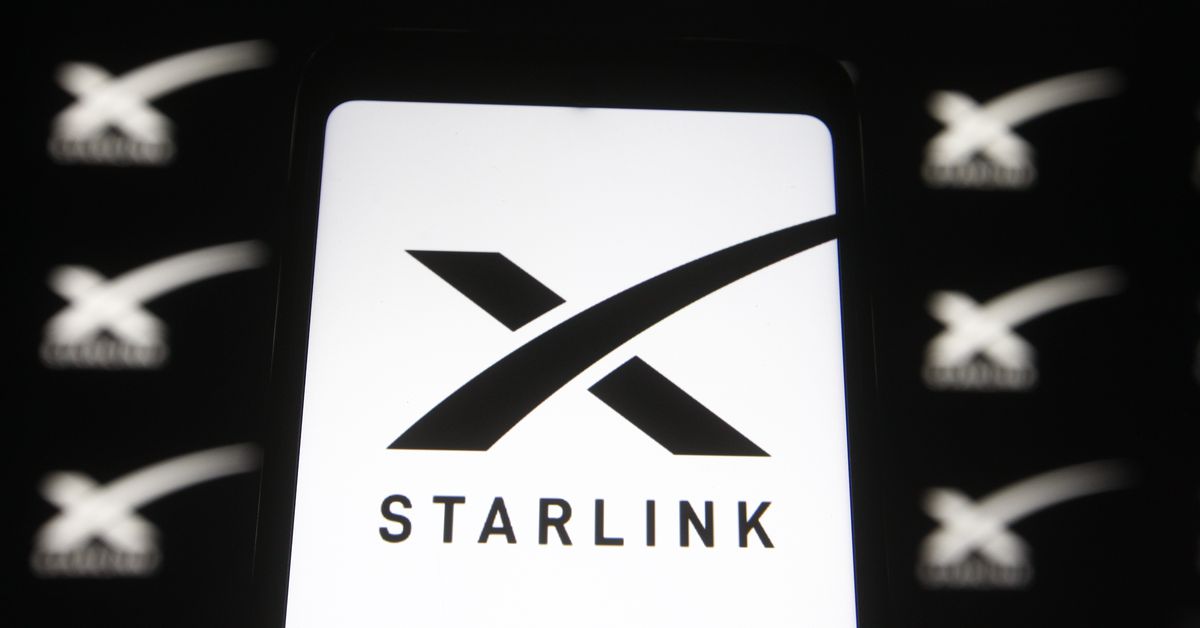SpaceX wins approval for lower Starlink orbits, overcoming rival objections
Source: The Verge added 27th Apr 2021The Federal Communications Commission on Tuesday granted SpaceX approval to operate 2,814 Starlink satellites in lower orbits than originally planned, handing a win to Elon Musk’s satellite internet project. The decision delivered a partial defeat over its competitors, like Amazon and OneWeb, which sought to thwart the tweak over concerns it would create harmful frequency interference and ramp up risks of satellite collisions.
The FCC found that allowing lower orbits for Starlink satellites “does not create significant interference problems.” Lowering the orbits, it said, allows SpaceX to make “safety-focused” changes to the constellation, like being able to more quickly discard any dead or broken satellites by steering them toward a fiery end in Earth’s atmosphere.
The approval came with some conditions: SpaceX must coordinate with other operators to ensure signals from Starlink satellites don’t interfere with others. The company will need to provide semiannual reports to the FCC on Starlink failures. Those reports will also list any “conjunction events” or any maneuvers or close calls with other satellites.
SpaceX’s Starlink network so far has over 1,300 satellites in orbit. The company plans to launch thousands more to provide global broadband internet to rural parts of the world, for governments and consumers alike. Amazon and OneWeb are also developing their own satellite internet networks. OneWeb has launched 182 of its planned 648 satellites. Amazon’s Kuiper network hasn’t launched any yet, but it won FCC approval in 2020 to launch 3,236 satellites, half of which must be in space by 2026.
SpaceX won approval to operate its first group of 1,584 satellites in a lower-than-planned orbit in 2019. Almost all of those satellites are already in space, making the FCC’s decision on Tuesday timely for SpaceX’s next tranche of satellites.
The FCC’s approval means that SpaceX can lower the altitude of its next 2,814 satellites from a previously planned altitude of around 1,150 km to around 550 km, the same orbital neighborhood as Amazon’s proposed constellation. The FCC said SpaceX’s modification application attracted “nearly 200 pleadings” from other organizations and “a significant number” presentations and additional letters, most of which pushed back SpaceX’s change.
Those organizations included rivals Amazon and OneWeb, which sought to convince the FCC that SpaceX’s proposed altitude change would create signal interference with nearby satellites and increase risks of orbital collisions — especially as SpaceX’s autonomous collision avoidance system doesn’t tell other orbital operators which way a Starlink satellite will move to avoid a crash. Rivals also claimed the several proposed modifications to SpaceX’s original license, granted in 2018, should be treated as an entirely new constellation with a more rigorous approval process, an idea the FCC rejected in Tuesday’s ruling.
In a statement, Amazon cast the FCC decision as a win, pointing to one of the FCC conditions of the modification that says SpaceX must “accept” any interference from Amazon’s Kuiper constellation in the future. The condition suggests SpaceX’s 2,814 satellites must work around Amazon’s constellation, instead of Amazon having to adjust its network to SpaceX’s modification — a prospect the company fought against.
“This is a positive outcome that places clear conditions on SpaceX, including requirements that it remain below 580 km and accept additional interference resulting from its redesign,” a company spokesman said. “These conditions address our primary concerns regarding space safety and interference, and we appreciate the Commission’s work to maintain a safe and competitive environment in low earth orbit.”
Amazon’s fight against the SpaceX modification tumbled out of the obscure FCC meetings and into the open in January, when Musk accused Bezos’ company of trying to “hamstring Starlink today for an Amazon satellite system that is at best several years away from operation.” Amazon shot back in a company statement, saying “it is SpaceX’s proposed changes that would hamstring competition among satellite systems” and that Musk’s company is trying “to smother competition in the cradle if they can.”
On SpaceX’s autonomous collision avoidance system, which the company temporarily disabled this month to coordinate a collision-avoidance maneuver with a OneWeb satellite, the FCC said none of the companies “raise specific or particularized concerns that warrant additional inquiry at this time.” Questions about SpaceX’s automated system, the FCC said, “could be addressed through good faith coordination among the operators”.
Moving Starlink satellites to lower altitudes is a plus for astronomers, who for years have complained that SpaceX’s satellites reflect sunlight during ground-based nighttime observations and stain images of the cosmos with obtrusive streaks of light as they pass by in orbit. Lowering the satellites’ altitude puts them further into Earth’s shadow from the Sun. And combined with other efforts to reduce their reflectivity, operating the satellites in lower altitudes helps mitigate their impacts on visual astronomy, the American Astronomical Society was cited as saying in the FCC filing.
brands: Amazon Best Especially First It New One Orbit other Space SUN WAS media: 'The Verge' keywords: Amazon Elon Musk Internet SpaceX
Related posts
Notice: Undefined variable: all_related in /var/www/vhosts/rondea.com/httpdocs/wp-content/themes/rondea-2-0/single-article.php on line 88
Notice: Undefined variable: all_related in /var/www/vhosts/rondea.com/httpdocs/wp-content/themes/rondea-2-0/single-article.php on line 88
Related Products
Notice: Undefined variable: all_related in /var/www/vhosts/rondea.com/httpdocs/wp-content/themes/rondea-2-0/single-article.php on line 91
Warning: Invalid argument supplied for foreach() in /var/www/vhosts/rondea.com/httpdocs/wp-content/themes/rondea-2-0/single-article.php on line 91
